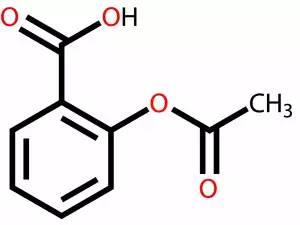Aspartic acid or Asp, is a nonessential amino acid that performs a series of functions in the body.
Nonessential amino acids are ones the body can synthesize itself should it require them. Aspartic acid is one of the 2 main excitatory amino acids in the brain - the other being glutamine.
Benefits of Aspartic Acid
Aspartic acid is needed to maintain balance in the central nervous system. It protects against excessive nervousness or lethargy.
When it is converted back into aspartate, aspartic acid produces energy which the brain and nervous system use in metabolism. It helps the process of converting one amino acid into another in the liver.
Since it boosts energy in the body,
aspartic acid is good for depression and tiredness; it plays a vital role in metabolism.

Low levels of aspartic acid lead to chronic fatigue and decreased energy in the cells. Suitably balanced levels of this amino acid are beneficial for nervous system and brain disorders.
Aspartic acid is good for athletes and helps protect the liver by helping remove excess ammonia. Aspartic acid binds with other amino acids to form molecules which absorb toxins and remove them from the bloodstream. It aids cell function, as well as RNA and DNA (the carriers of genetic information in the body) functions.
Aspartic acid increases production of antibodies and immunoglobulins. It plays a very important role in the feeding of cells and the synthesis of numerous amino acids and biochemicals that are crucial to proper body function, such as arginine, asparagine, methionine, lysine, threonine and isoleucine.
Aspartic acid helps transport minerals needed to produce the hereditary information of DNA and RNA. This amino acid maintains brain function by stimulating the production of neurotransmitters and chemical substances required for normal psychological functions.
Sources of Aspartic Acid

Natural sources of aspartic acid are veal, chicken meat, sprouted seeds, dairy products, avocados, asparagus, oats, molasses and cane sugar. Besides through these food products, we can obtain aspartic acid in the form of food supplements.
Deficiency of Aspartic Acid
Deficiency of aspartic acid may develop in people whose diet is low in proteins or are suffering from malnutrition. This deficiency is usually expressed in the form of depression or severe physical fatigue.
The desire for a boost of overall endurance and increased bodily resistance against fatigue is the reason why aspartic acid is present in the formulas of numerous dietary supplements for athletes and people who are subjected to severe physical stresses.



















Comments